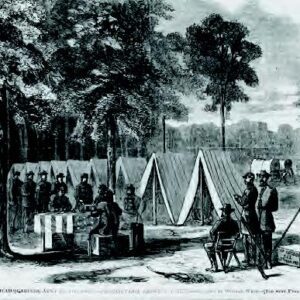May 21, 2024
Keeping Postal Workers Safe: A Guide to Heat Safety
As the temperatures rise, postal workers across the country face increased risks of heat-related illnesses while sorting and delivering the mail. The APWU is committed to ensuring the safety and well-being of all postal workers. Heat-related illnesses are not just an outdoor issue either. Postal workers can still experience heat related illnesses while working indoors. Therefore, we encourage you to be aware of the symptoms and take the necessary precautions to minimize the effects of working in hot weather conditions.
Understanding Heat-Related Illnesses
Heat-related illnesses, such as heat exhaustion and heatstroke, occur when the body’s temperature regulation system becomes overwhelmed by excessive heat.
Heat Exhaustion
Heat exhaustion is a serious condition that occurs when the body loses fluids and essential salts through sweating, leading to dehydration and overheating. Symptoms of heat exhaustion include:
- Excessive sweating
- Fatigue
- Nausea or vomiting
- Dizziness or fainting
- Headache
- Rapid heartbeat
If left untreated, heat exhaustion can progress to heatstroke, which is a life-threatening emergency. Heatstroke: Heatstroke is a medical emergency that occurs when the body’s internal temperature reaches dangerously high levels, typically above 104°F (40°C).
Symptoms of heatstroke include:
- Hot, dry skin or profuse sweating
- High body temperature
- Rapid heartbeat
- Confusion or disorientation
- Loss of consciousness
Heatstroke requires immediate medical attention and can be fatal if not treated promptly.
Preventing Heat-Related Illnesses: Preventing heat related illnesses requires proactive measures and awareness. Here are some essential tips for staying safe in hot weather:
- Stay Hydrated: Drink plenty of water before, during, and after your shift. Avoid caffeinated and alcoholic beverages, as they can contribute to dehydration.
- Dress Appropriately: Wear lightweight, breathable clothing that allows sweat to evaporate. Consider wearing a wide-brimmed hat and sunglasses to protect yourself from the sun.
- Take Breaks: Schedule frequent breaks in shaded or air-conditioned areas to rest and cool down.
- Know the Signs: Familiarize yourself with the symptoms of heat-related illnesses and be vigilant for any signs of distress among your colleagues.
- Communicate: If you experience symptoms of heat related illness or notice a coworker in distress, notify your supervisor immediately.
The APWU is committed to advocating for the safety and well-being of postal workers. If you encounter unsafe working conditions, or believe that your health is at risk due to extreme heat, do not hesitate to reach out to your local union representative for support and assistance. If you work in a building with broken air conditioning, fill out PS Form 1767, Report of Hazard, Unsafe Condition or Practice, to report the issue.
Extreme heat poses significant risks to postal workers, but with proper precautions and support from our union, these risks can be minimized. By staying hydrated, taking breaks, and recognizing the signs of heat-related illnesses, postal workers can work safely, even in the hottest weather conditions. Together, let’s prioritize heat safety and ensure the well-being of all postal workers. ■



